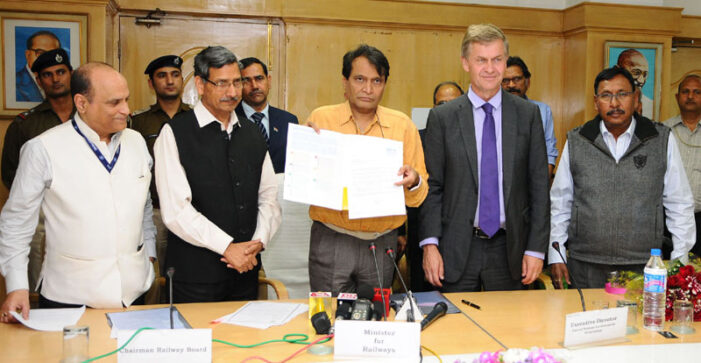Indian Railways wants to emulate the example of “Give it Up” campaign that was behind 1 crore people giving up their subsidized gas connections before it was made mandatory for all those above the income level of Rs.10 lakhs per annum.
A senior railway official said the ministry is pondering the possibility of similar appeal that can dissuade those who can afford to forfeit claim for subsidy in travel tickets.
“Passengers will have the option to forgo either 100 per cent of the subsidy or 50 per cent or to avail of the subsidy. It will be a voluntary decision,” said the official.
The idea surfaced when a passenger Krishen Kher returned Rs.950 subsidy for his trip sending a cheque to online reservation entity IRCTC. It hit upon them that many people may come forward to renounce any subsidy and save the differential amount of the actual fare, which comes to 57 per cent of each ticket and 40% on suburban rail tickets.
The annual subsidy comes to around Rs.30,000 crore for the Railways. “We expect people who are well off to forgo the subsidy, as details of this are already printed on tickets,” said the official.
The ministry has recently roped in the National Institute of Public Finance and Policy on undertaking efforts to reduce its subsidy burden, following the 2015 Bibek Debroy committee report to go corporate way. In 2016-17 Indian Railways had posted its worst ever operating ratio in 16 years at 96.9 per cent.
Another international consultancy has been asked to design a performance index to measure the country’s largest transportation entity and public sector undertaking (PSU) instead of operating ratio.
If performance comes into reckoning, then railways should increase their frequency of trains on profitable routes and limit them on unprofitable routes. Secondly, the government officials and representatives will have to forfeit their subsidized ticket fares for higher class travel.
Many committees had commissions have recommended Indian Railways to go the corporate way but the Indian government is unable to implement them in view of backlash and huge ticket-less travel reported in states such as Jharkhand, Bihar, West Bengal and Uttar Pradesh.


It presumes that the present costs contain no wastages. A big assumption IMHO.